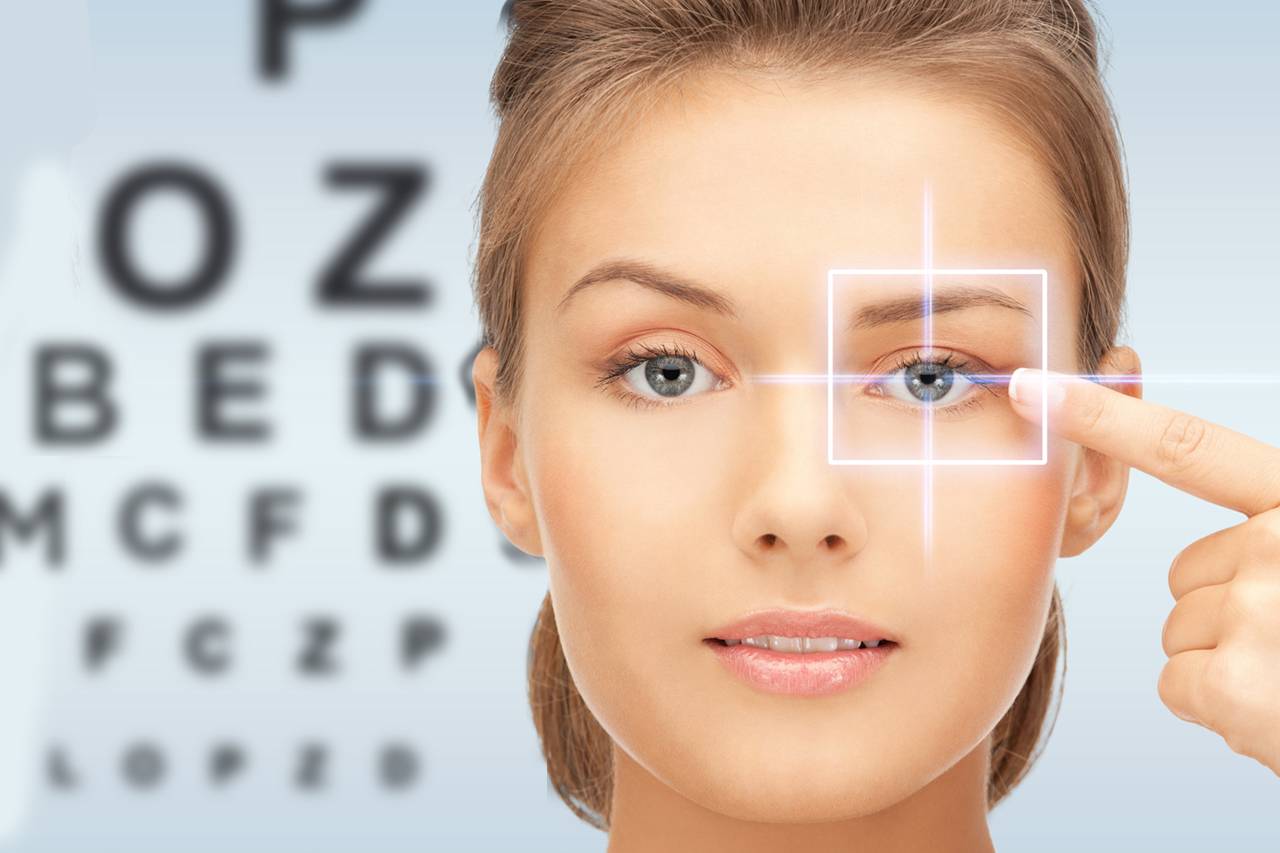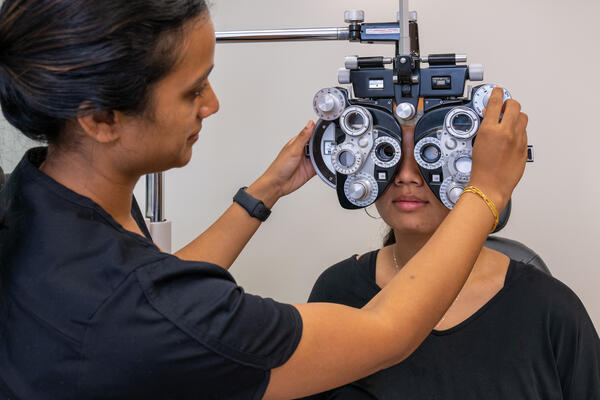Is Refractive Surgical Treatment Right for You? Elements to Take Into Consideration for Better Eyecare
In the world of eye care, the decision to go through refractive surgical procedure is a substantial one that requires thoughtful factor to consider. From the intricacies of one's eye wellness to the ins and outs of day-to-day practices and individual assumptions, each element holds relevance in the broader landscape of refractive surgery candidacy.
Eye Wellness Evaluation
When considering refractive surgical procedure, a detailed eye health analysis is crucial to examine the viability of the procedure for each individual. eye center andalusia. This assessment involves a series of examinations and tests carried out by an eye care professional to determine the overall health and wellness of the eyes, the existence of any type of underlying conditions, and the stability of the refractive error
During the assessment, numerous factors are taken right into account, such as the client's medical background, current eye prescription, corneal thickness, pupil dimension, and tear movie quality. These assessments assist to determine any type of contraindications to refractive surgical treatment, such as corneal irregularities, cataracts, or unattended eye infections. Furthermore, the assessment assists to handle client assumptions concerning the potential results of the surgical treatment based on their special eye features.
Ultimately, the eye health and wellness examination is important in ensuring the safety and security and performance of refractive surgery, as it provides valuable insights right into the individual's eye wellness condition and assists establish the most appropriate treatment options for attaining optimum aesthetic outcomes. (cardiologist andalusia)
Lifestyle Evaluation
A complete lifestyle evaluation is integral in determining the viability of refractive surgical treatment for an individual's visual improvement requirements. Lifestyle elements such as profession, hobbies, and daily tasks play a critical duty in the decision-making process regarding refractive surgery. As an example, people with occupations that entail a high degree of exercise or exposure to environmental components may have various aesthetic demands contrasted to those with less active workdesk jobs. Recognizing exactly how a person's way of living may influence their vision post-surgery is necessary for managing assumptions and ensuring optimum outcomes.
Additionally, lifestyle practices such as sporting activities involvement, outdoor tasks, or also skin care routines can influence the recovery procedure and general success of refractive surgical treatment. By carrying out a detailed way of living analysis, eye treatment professionals can customize their referrals and treatment strategies to satisfy the one-of-a-kind requirements of each individual, ultimately leading to enhanced visual outcomes and complete satisfaction.
Expectation Alignment

Establishing practical imp source assumptions entails thorough pre-operative conversations between the patient and the eye doctor. The doctor needs to transparently interact the prospective dangers, advantages, and limitations of the procedure (cardiologist andalusia). People need to comprehend that while many people achieve 20/20 vision or far better complying with refractive surgical procedure, some might still need glasses for sure activities like reading or driving at evening. Handling these expectations assists avoid dissatisfaction and dissatisfaction post-surgery, leading to a more favorable total experience for the person.
Threat Analysis

Aspects that may enhance the risk of complications include age, specific medical conditions like autoimmune illness, unsteady vision prescription, slim corneas, and impractical individual assumptions. In addition, selecting a competent and experienced specialist, complying with pre and post-operative treatment directions faithfully, and disclosing any type of relevant clinical background can aid reduce dangers.
To reduce the possibility of complications, ophthalmologists perform detailed pre-operative assessments to identify any kind of contraindications to surgery. They likewise go over the potential risks and advantages with individuals throughout the consultation process. By taking part in open interaction and shared decision-making, both the eye doctor and the individual can collaborate to determine if refractive surgery is the right option based upon individual threat profiles and preferred outcomes.
Appointment Relevance
Taking into consideration the critical duty of educated decision-making in assessing threats and prospective issues in refractive surgical procedure, the examination process holds substantial value in leading people in the direction of optimal outcomes. Throughout go to this website the examination, the eye doctor reviews the client's eye health, refractive errors, and total viability for surgical treatment. This first analysis is critical in figuring out one of the most suitable procedure for every individual, taking right click into account elements such as corneal density, student dimension, and existing eye problems.
Additionally, the assessment serves as an opportunity for patients to review their assumptions, problems, and any kind of inquiries they may have regarding the surgery. Clear communication in between the doctor and the person is important to make sure sensible expectations and a complete understanding of the potential threats and advantages entailed.
In addition, the examination permits the surgeon to discuss the different medical alternatives available, their respective outcomes, and the post-operative treatment called for. This detailed discussion encourages individuals to make knowledgeable decisions about their eye care, leading to much better complete satisfaction and end results post-surgery.
Final Thought
To conclude, individuals taking into consideration refractive surgical treatment should go through a comprehensive eye wellness assessment, analyze their way of life habits, align their assumptions with possible results, assess the involved dangers, and prioritize assessments with eye care experts. These aspects play a critical role in establishing the viability of refractive surgical treatment for each individual, guaranteeing optimum results and contentment with the treatment.
Patients considering refractive surgical procedure commonly have high expectations regarding the outcomes, anticipating excellent vision without the requirement for glasses or get in touch with lenses. While refractive surgery can substantially improve vision and lower reliance on visual help, it is crucial for individuals to understand that results may vary based on private elements such as the degree of refractive mistake, corneal density, and total eye health.
By engaging in open interaction and shared decision-making, both the ophthalmologist and the client can work together to establish if refractive surgical procedure is the appropriate option based on private danger profiles and desired results.
Thinking about the important function of educated decision-making in assessing risks and possible complications in refractive surgery, the assessment procedure holds considerable significance in assisting clients towards optimum end results. Throughout the assessment, the eye doctor assesses the patient's eye health, refractive errors, and general viability for surgery.